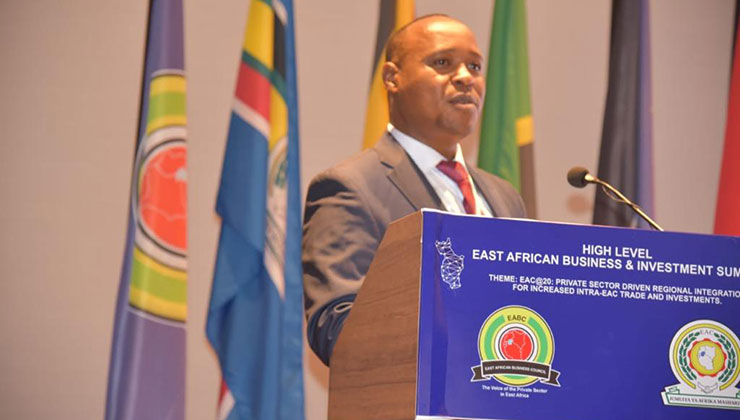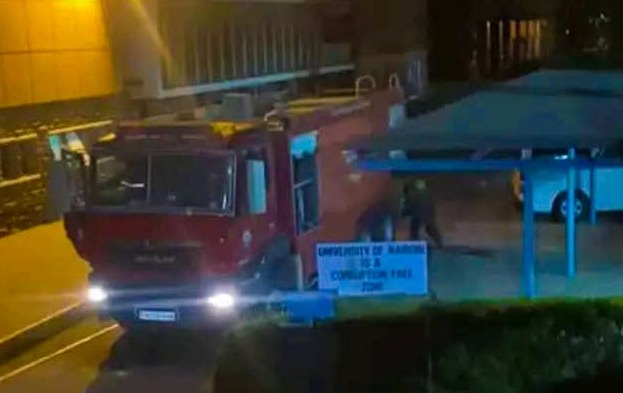The top private sector organization in East Africa has urged regional transport, health, and the East African Community (EAC) ministers to resolve the crisis at the Namanga border.
This comes amid a 14-day standstill on the movement of goods between Kenya and Tanzania at the busy border point.
“There are over 1,000 trucks stranded at both sides of the border, this is significantly affecting the intra-EAC trade and movement of essential and perishable goods across borders,” said East African Business Council (EACB) Executive Director and Chief Executive Officer, Dr. Peter Mathuki.
Further, Dr. Mathuki warned that there is a slow down in the movement of cargo across all EAC borders.
“This is disrupting regional value chains due to the emerging challenges restricting the movement of truck drivers in a bid to contain the spread of COVID-19,” said the EABC boss.
According to the latest data from the International Trade Centre, Kenya imports products valued at Ksh19 billion while exporting to the same country goods worth Ksh32.3 billion annually.
Rwanda on the other hand imports goods worth Ksh14.4 billion ($135 million) from Kenya and Ksh213 million ($2 million) value of goods from Tanzania.
To ease the backlog in the borders, the EABC said that it is ready to offer support towards a public-private dialogue on cross border trade to unblock the current trade barriers.
Dr. Mathuki said dialogue is critical for economic recovery for the EAC region.
This week, the Tanzanian deputy minister for health toured the Namanga border where he addressed truck drivers stuck on their side.
Some of the drivers claimed that they had tested positive for coronavirus on the Kenyan side but had not exhibited any symptoms for the two weeks they have been there.
Further, some of the drivers claimed that officials on the border may be coercing drivers to part with bribes for clearance.
Last month on May 20, when border issues were boiling over, President Uhuru Kenyatta called his Tanzania counterpart John Magufuli to ease tensions.
Following their cordial dialogue, the two presidents ordered their ministers to resolve the border spat caused by Covid-19 testing on the border.
One of the directives the presidents demanded resolved was to ensure the free movement of goods across the border.










